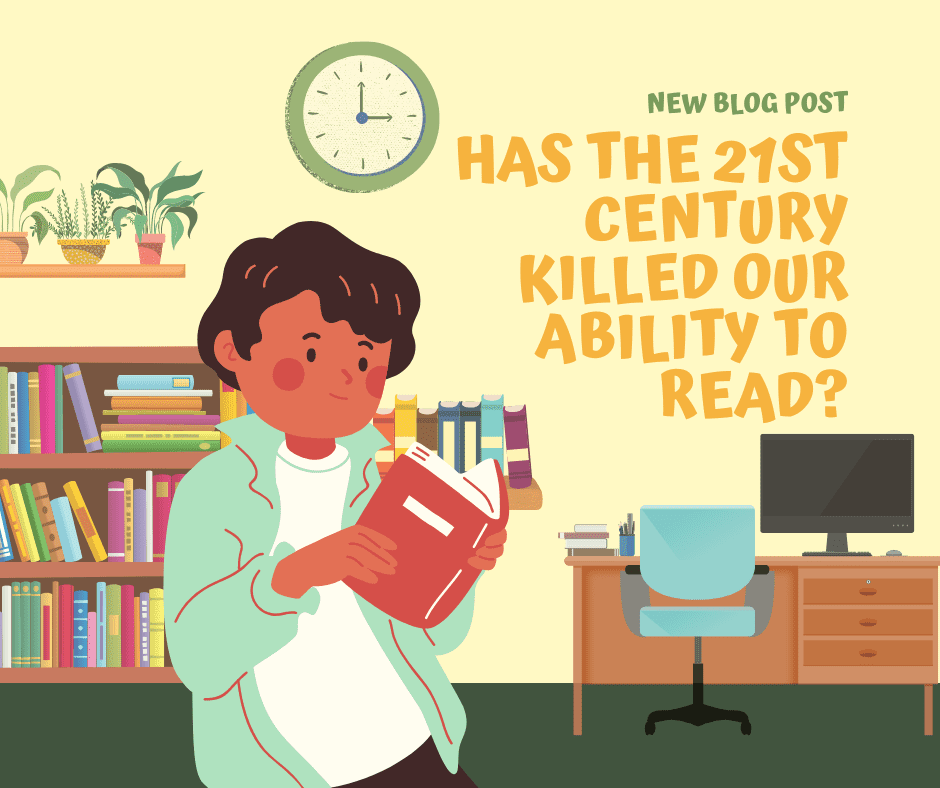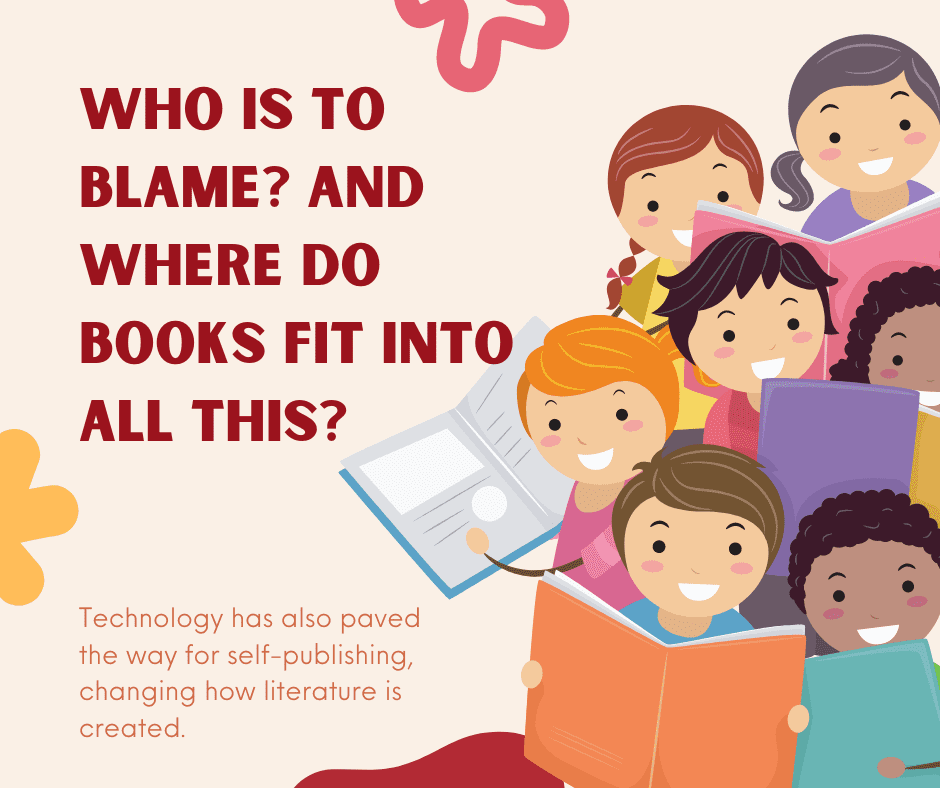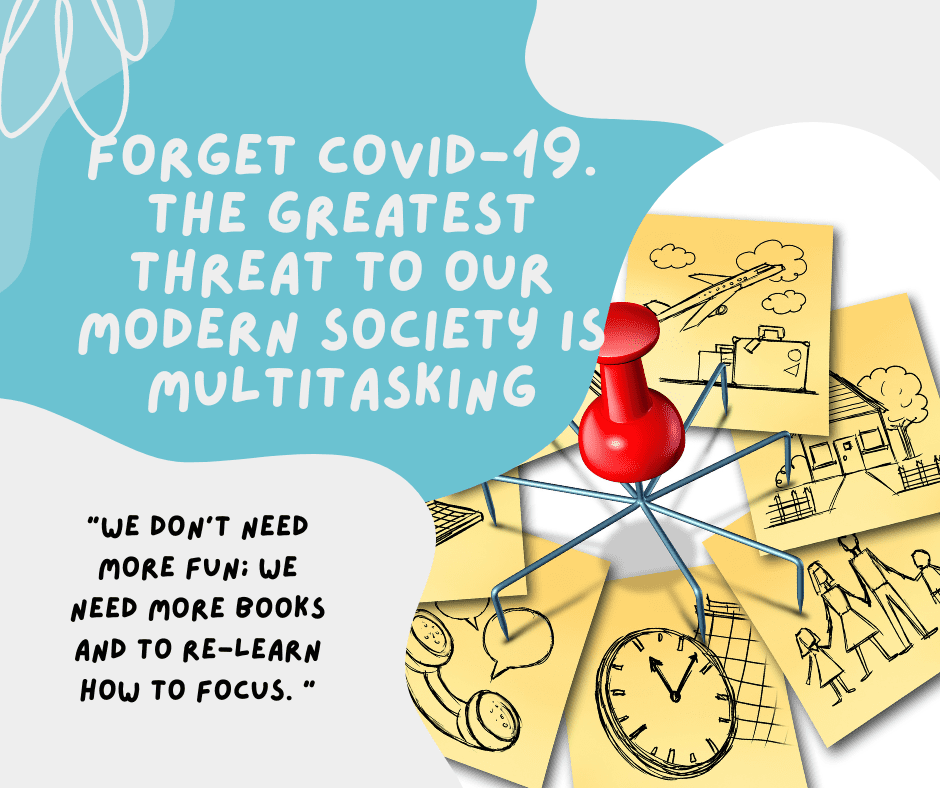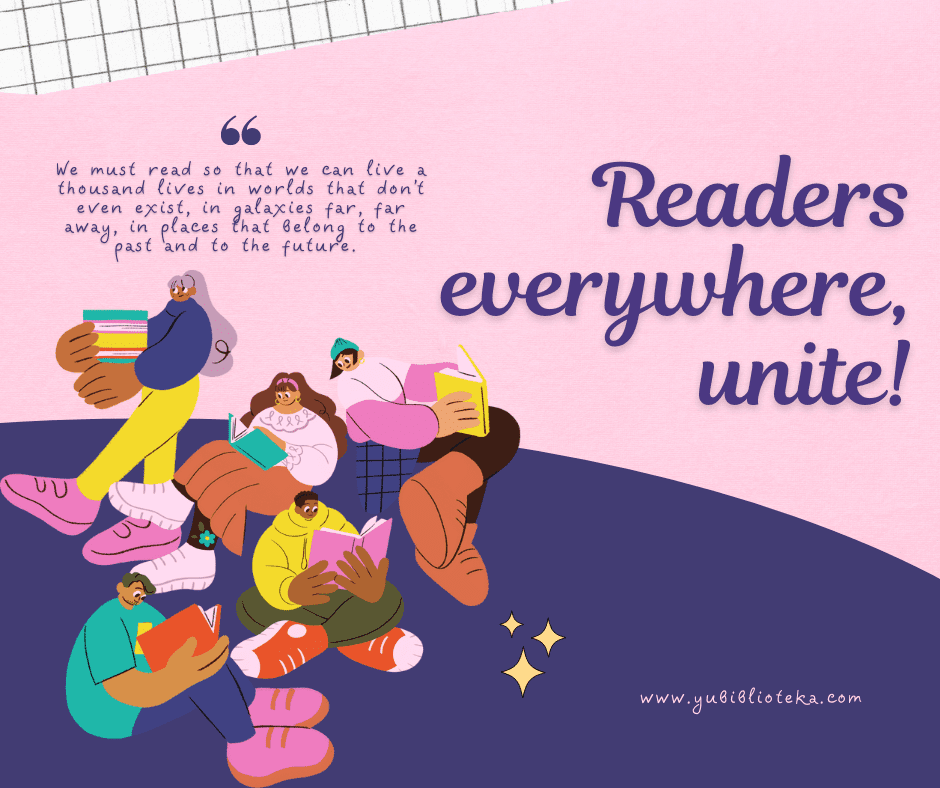Has the 21st Century Killed Our Ability to Read?

There’s a song from the 1980s called Video Killed the Radio Star (The Buggles, 1979) about how the rising popularity of television as a form of entertainment and information “killed” the radio industry. Ironically, it was the first music video to ever launch on MTV, back when MTV was all about music. Forty years later, the video is still getting away with murder.
The 21st century has seen the end of many things: remembering phone numbers by heart, asking for directions, owning an actual physical map of places you visit, and chivalry. But the era of technology has yet to kill something as tragic as reading books.
People’s reading habits and preferences have changed due to the rise of digital technology and the endless proliferation of entertainment forms. We now live in an extraordinary time in history: the time when you mustn’t allow one precious second to be wasted on your thoughts instead of on something fun.
I know what you’re thinking: I am not one of those obsessed people whose face is glued to the smartphone screen. Do you take your phone with you when you go to the toilet? Or to shower? Do you often scroll through your social media feed while you eat? Do you check your phone all the frigging time when you wait in lines or ride trains and buses?
Sorry to break it to you, but you ARE one of those people.
Attention? What attention?
Here’s the thing: no one wants to be bored nowadays. We used to carry books everywhere we went. To the doctor’s office, to the bus stop, to the park, to beaches and coffee shops, especially to long flights or camping trips. Books nestled in our backpacks while we huddled in tents, wrapped in sleeping bags, flipping pages by flashlight, and letting the stories weave a comforting tapestry in the midst of nature’s grandeur.
Now we have our phones to keep us distracted. All. The. Time.
We used to read from real-life paper books under candlelight, straining our eyes for literature and/or knowledge. Today, we are able to scroll for hours in one sitting, completely oblivious to the world around us. We spend more time scrolling than reading. (Repeat after me: Instagram captions and Facebook posts do not count, not even as light reading.)

Recent research has shown that our attention span has decreased dramatically (and I do mean dramatically). That means we’d rather see a quick video than read a long post about it. Be honest, how many times have you seen a post on Facebook that was more than three solid paragraphs long and rolled your eyes so hard it gave you a three-day migraine?
The golden age of television, my sweet chubby ass—people no longer have the patience to sit through hours and hours of movies. One episode a day keeps our short-term attention span at bay. They have kind of started making movies outrageously long (we’re looking at you, Mr. Scorsese), while our attention span is going down the toilet.
Who is to blame? And where do books fit into all this?
Technology has changed how literature is consumed. We can now access books online with a mouse click or a swipe of our finger. Convenient, isn’t it? That’s what technology is for—to make our lives easier, and our attention spans shorter. Technology has also paved the way for self-publishing, changing how literature is created.
Social media makes short content easily accessible and, in case we don’t like what we’re looking at, easily scrollable. It has become infinitely more convenient to spend hours looking at a hundred short pieces of content (the shorter the better; one-liners are sometimes all our poor brain cells can stomach) than to spend that same amount of time reading one long piece.
I found the aforementioned research on why and how our attention span has become shorter over the years. And guess what? I didn’t read it all the way through.
Distractions, distractions
Okay, let’s cut ourselves some slack. It’s not like we’re entirely to blame for being addicted to our phones. When you receive a notification, your dopamine levels increase. Dopamine is a neurotransmitter that regulates emotions and feelings of happiness and pleasure. It’s also heavily involved in regulating the reward system. Your dopamine levels rise when you see something funny, cute, or satisfying—a kitten sleeping in a weird position, a compilation of kids or adults falling, or even a fancy Instagram-oriented video of food. The thing about dopamine and pleasure is that we always want more.

And that’s fine; we are, after all, creatures of hedonism and animal urges. As such, we feed off of those short-lived bursts of pleasure. But can we shut that off when we try to focus on work, books, movies, or anything else that actually matters?
Unlike scrolling through meaningless content online, reading actually requires the active participation of our brain cells. Reading also boosts dopamine if you’re into that sort of thing. Activities we like and thoroughly enjoy make us happy. We don’t need an elaborate scientific study to tell us that much. But reading takes much longer to get there, to generate more dopamine that will keep us happy and content, whereas social media gives us a quick fix.
Forget Covid-19. The greatest threat to our modern society is multitasking.
Are you guilty of multitasking? Don’t worry; you’re not alone. You might cook dinner while listening to music and reading a book simultaneously. (Guilty.) You might also watch TV and read the news on your phone simultaneously, barely fully concentrating on either activity. Whatever sin of multitasking you’re guilty of, I’m here to spread the good word: multitasking is rooted in the same problem we face with technology taking over our lives. We just can’t seem to focus on one thing anymore. And then we have the audacity to demand our children pay attention in school and yell at them for wanting to watch TV or use a tablet while eating. Wake up and smell the double standards, people.
As a society, we have doomed ourselves by relying too much on technological advancements. We have spent every available resource and piece of knowledge on finding ways to make our lives easier, but in fact, we’ve managed to do the opposite. We’ve fudged ourselves over by inventing hundreds of ways to pass the time and keep us distracted because God forbid we’d be bored for one whole minute.
We don’t need more fun; we need more books and to re-learn how to focus.
Whenever you read a good book, somewhere in the world
a door opens to allow in more light.
—Vera Nazarian
Readers everywhere, unite!

The world of literature is slowly dying. Fewer and fewer people are reading books. Soon, there’ll be fewer and fewer people writing them. The world of literature is being replaced by ideas of modernism when in fact, everything is sinking. We cannot let books sink. We cannot let reading sink. Have you read Bradbury’s Fahrenheit 451? Is that the world you want to live in?
We cannot let anything kill reading, no matter how convenient and practical it is. Kids who read become adults who think. Let’s not go from thinking adults to adults addicted to screens. We must read to keep the most beautiful form of art alive. Just like Ivo Andrić’s little Aska danced to save herself from the wolf, we must read to save ourselves from ourselves.
When we read, the stories of the impossible and possible collide and live on. In us and in our children. We must read so that we can live a thousand lives in worlds that don’t even exist, in galaxies far, far away, in places that belong to the past and to the future.
We must read to allow in more light.
P.S. Congratulations to all of you who reached the end of this long post.
Truly yours,
Vanja
